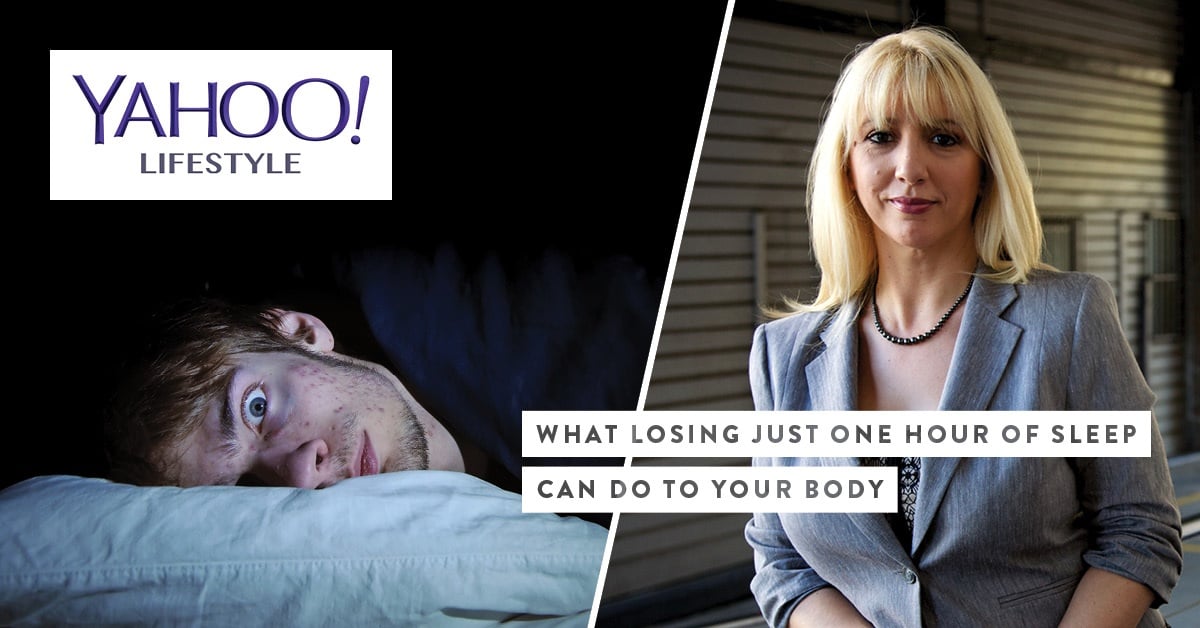What Happens When the Brain is Too Tired to Perform?
When we sleep, our brains are essentially flushed with cerebral spinal fluids, which may help clear out toxins that accumulate in the brain.1 Tired leaders may feel as if they are effective, but in reality, tiredness results in more mistakes and a decreased work pace.
Our leadership abilities are directly tied to a well-rested brain, and we must promote healthy sleeping habits for ourselves and those we work with. When we are tired, we just don’t do as well. We tend to be short with others and harder on ourselves.
However, we cannot deny our biology, as much as we may want to. We have to sleep. Unfortunately, many of us around the world are not.
Some sobering statistics include:
- Australia: 4 in 10 adults aren’t getting enough sleep.2
- Mexico: 29% of adult workers admit getting less than 7 hours of sleep on work nights.3
- United States: 1 in 3 adults don’t get enough sleep, according to the CDC.4
- Spain: Spaniards get around an hour less of sleep each night, compared to other Europeans.5
- Argentina: A study found that 22% of people in Argentina were ‘too drowsy’ during the day, with 15% getting less than 6 hours of sleep each night.6
For many people, though, there is no respite from the daily grind. Our obligations don’t go away when we need more sleep. If anything, we feel the pressures around us even more acutely when we are tired. What if life didn’t have to be this way? What if we could take the time needed to rest properly, take the time to nourish our bodies and souls, and still have time to do a great job at work?
There is a time for many words, and there is also a time for sleep.
Homer, The Odyssey
Finding Balance Is A Necessity, Not A Luxury
We expect ourselves to do more while taking care of ourselves less. We expect better performance from a stressed, overtired brain. The reality is, we are dancing on a house of cards. At any moment, one more thing could topple this fragile existence. When we have balance, we aren’t perched precariously on a house of cards ready to fall over. Instead, our foundation is firm and supportive and ready to propel us forward.
Are you able to look in the mirror and honestly say out loud:
- That you are well-rested?
- Do you see the faint (or not so faint) dark circles under your eyes?
- Do your eyes themselves look tired?
- What about your spirit and soul underneath your physical shell?
When your brain is too tired to perform, you are too tired to enjoy existence. And what is life if we don’t have moments of happiness?
The brutal, hard answer is that for some, balance will find them by taking a toll on their physical and mental health. Working more than 55 hours a week increases your risk of a stroke by over 30%.7 For many, finding balance comes too late, after damage has already been done to their bodies.
Taking Your Life Back
Most people (even the extremely wealthy) have obligations they cannot ignore. However, there are many things we feel obligated to do that we shouldn’t. Working extra because it is expected without compensation isn’t altruistic, it means you are being taken advantage of.
Stop for a moment and assess the things in your life. If it’s toxic and requires you to work past the point of exhaustion, perhaps some tough decisions need to be made.
Question Time
Are you feeling fatigued?
Citations:
- Nedergaard M. Neuroscience. Garbage truck of the brain. Science 2013; 340: 1529–1530.
- Healthdirect Australia. Healthy Sleep Habits, https://www.healthdirect.gov.au/healthy-sleep-habits (accessed 26 September 2020).
- Smith S. Feeling Tired? Americans Sleep Less than Most, https://www.ehstoday.com/health/article/21915866/feeling-tired-americans-sleep-less-than-most (2013, accessed 28 September 2020).
- 1 in 3 adults don’t get enough sleep, https://www.cdc.gov/media/releases/2016/p0215-enough-sleep.html (2019, accessed 26 September 2020).
- Socolovsky J. Sleep Deprivation in the Home of the Siesta. NPR, 12 October 2005, https://www.npr.org/templates/story/story.php?storyId=4955790 (12 October 2005, accessed 26 September 2020).
- Vassigh A. Buenos Aires Wakes Up To The Importance Of New Age Siestas, https://worldcrunch.com/culture-society/buenos-aires-wakes-up-to-the-importance-of-new-age-siestas (accessed 26 September 2020).
- Boseley S. Working longer hours increases stroke risk, major study finds. The Guardian, 20 August 2015, http://www.theguardian.com/lifeandstyle/2015/aug/20/working-longer-hours-increases-stroke-risk (20 August 2015, accessed 26 September 2020).
- i4 Neuroleader (353)
- Leadership & Culture (336)
- Brain Health & Wellbeing (206)
- Innovation (97)
- Performance (85)
- Our News (79)
- Collaboration (68)
- Agility (53)
- Practitioner Stories (44)
- In The Press (36)
- Make Me A Leader (33)
- Balance (31)
- Integration (30)
- Imagination (29)
- Awareness (23)
- Brain-Friendly Channel (22)
- Brain-Friendly Leadership (22)
- Communication (22)
- Curiosity (21)
- Inspiration (19)
- Intuition (19)
- Attitude (17)
- Courage (16)
- Adaptability (14)
- Case Studies (14)
- Drive (14)
- Generosity (13)
- Ethics (9)
- Mental Readiness (9)
- Influence (8)
- Retreat (8)
- Brain-Friendly Leadership (1)
- Oracle Cards (1)
- 1 November 2025 (2)
- 1 September 2025 (3)
- 1 August 2025 (5)
- 1 July 2025 (5)
- 1 June 2025 (2)
- 1 April 2025 (1)
- 1 March 2025 (8)
- 1 February 2025 (3)
- 1 September 2024 (4)
- 1 July 2024 (2)
- 1 June 2024 (6)
- 1 May 2024 (2)
- 1 April 2024 (3)
- 1 March 2024 (1)
- 1 November 2023 (1)
- 1 August 2023 (1)
- 1 July 2023 (2)
- 1 June 2023 (2)
- 1 May 2023 (4)
- 1 April 2023 (2)
- 1 March 2023 (7)
- 1 February 2023 (4)
- 1 January 2023 (1)
- 1 September 2022 (1)
- 1 May 2022 (3)
- 1 April 2022 (1)
- 1 March 2022 (5)
- 1 February 2022 (4)
- 1 January 2022 (4)
- 1 December 2021 (2)
- 1 November 2021 (4)
- 1 October 2021 (3)
- 1 September 2021 (6)
- 1 August 2021 (1)
- 1 April 2021 (1)
- 1 December 2020 (2)
- 1 November 2020 (1)
- 1 September 2020 (1)
- 1 August 2020 (1)
- 1 July 2020 (3)
- 1 June 2020 (4)
- 1 May 2020 (3)
- 1 April 2020 (4)
- 1 March 2020 (6)
- 1 February 2020 (4)
- 1 January 2020 (2)
- 1 December 2019 (3)
- 1 November 2019 (3)
- 1 October 2019 (5)
- 1 September 2019 (4)
- 1 August 2019 (4)
- 1 July 2019 (4)
- 1 June 2019 (5)
- 1 May 2019 (9)
- 1 April 2019 (9)
- 1 March 2019 (8)
- 1 February 2019 (7)
- 1 January 2019 (8)
- 1 December 2018 (5)
- 1 November 2018 (10)
- 1 October 2018 (16)
- 1 September 2018 (9)
- 1 August 2018 (10)
- 1 July 2018 (9)
- 1 June 2018 (8)
- 1 May 2018 (9)
- 1 April 2018 (9)
- 1 March 2018 (9)
- 1 February 2018 (8)
- 1 January 2018 (8)
- 1 December 2017 (6)
- 1 November 2017 (9)
- 1 October 2017 (9)
- 1 September 2017 (8)
- 1 August 2017 (10)
- 1 July 2017 (8)
- 1 June 2017 (8)
- 1 May 2017 (9)
- 1 April 2017 (8)
- 1 March 2017 (6)
- 1 January 2017 (3)
- 1 December 2016 (4)
- 1 November 2016 (5)
- 1 October 2016 (4)
- 1 September 2016 (2)
- 1 August 2016 (4)
- 1 July 2016 (4)
- 1 June 2016 (2)
- 1 May 2016 (3)
- 1 April 2016 (3)
- 1 March 2016 (7)
- 1 February 2016 (2)
- 1 January 2016 (5)
- 1 December 2015 (2)
- 1 November 2015 (2)
- 1 October 2015 (4)
- 1 September 2015 (2)
- 1 August 2015 (2)
- 1 July 2015 (1)
- 1 June 2015 (3)
- 1 May 2015 (4)
- 1 April 2015 (5)
- 1 March 2015 (3)
- 1 February 2015 (3)
- 1 January 2015 (3)
- 1 December 2014 (3)
- 1 November 2014 (3)
- 1 October 2014 (3)
- 1 September 2014 (5)
- 1 August 2014 (4)
- 1 July 2014 (5)
- 1 June 2014 (3)
- 1 May 2014 (1)
- 1 March 2014 (1)
- 1 December 2013 (2)
- 1 November 2013 (1)
- 1 July 2013 (1)
- 1 June 2013 (1)
- 1 May 2013 (3)
- 1 April 2013 (1)
- 1 March 2013 (2)
- 1 February 2013 (1)
- 1 January 2013 (2)
- 1 November 2012 (1)
- 1 October 2012 (1)
- 1 September 2012 (1)
- 1 August 2012 (2)
- 1 July 2012 (1)
- 1 June 2012 (1)
- 1 May 2012 (2)
- 1 April 2012 (1)
- 1 February 2012 (1)
- 1 January 2012 (1)
- 1 November 2011 (1)
- 1 October 2011 (3)
- 1 September 2011 (2)
- 1 July 2011 (1)
- 1 June 2011 (1)
- 1 May 2011 (1)
- 1 April 2011 (1)
- 1 March 2011 (1)
- 1 February 2011 (2)
- 1 January 2011 (4)
- 1 December 2010 (4)
- 1 November 2010 (3)
- 1 October 2010 (5)
- 1 September 2010 (4)
- 1 August 2010 (4)
- 1 July 2010 (3)
- 1 June 2010 (4)
- 1 May 2010 (7)
- 1 April 2010 (5)
Subscribe by email
You May Also Like
These Related Stories

Sleep For Health

Yahoo Lifestyle: What Losing Just ONE Hour Of Sleep Can Do To Your Body



No Comments Yet
Let us know what you think